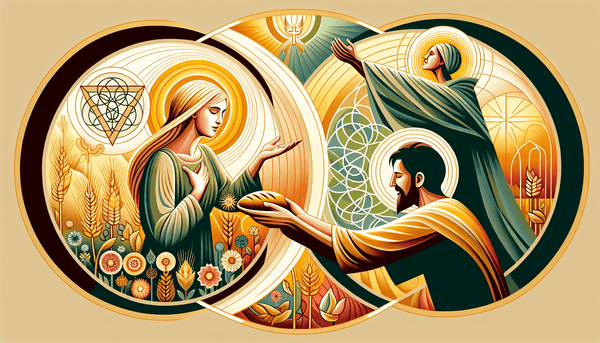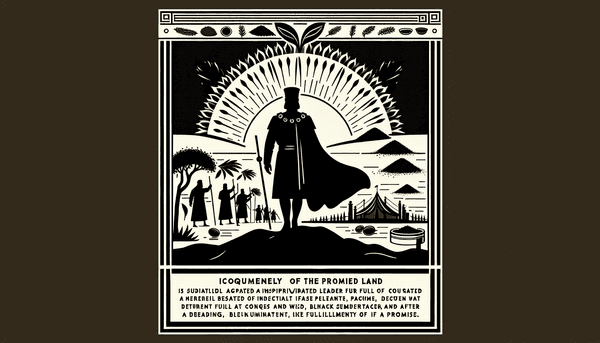Understanding the Holy Trinity
The Holy Trinity, though not explicitly mentioned by name in the Bible, is a cornerstone of Christian belief. It represents the unity of God in three persons: the Father, the Son, and the Holy Spirit. Each has a distinct role, yet they are one. The Father is the Creator, the Son is the Savior, and the Holy Spirit is the Sustainer. Jesus' command to 'go and make disciples of all nations, baptizing them in the name of the Father and of the Son and of the Holy Spirit' (Matthew 28:19) underlines this divine relationship. The Trinity works cohesively, offering grace, love, and fellowship to all believers, as beautifully expressed in 2 Corinthians 13:14. While the concept may seem daunting, it is an essential aspect of understanding the nature of God and His work in the world.
Glorifying God in All Aspects of Life
Christians are called to live a life that honors God in every action, a principle encapsulated in 1 Corinthians 10:31: 'So whether you eat or drink or whatever you do, do it all for the glory of God.' This exhortation goes beyond mere words, extending to how we conduct ourselves daily, including engaging with complex questions of faith and contemporary issues. It involves prayer, worship, and serving others, all of which should reflect God's love and righteousness. Colossians 3:17 echoes this sentiment, urging believers to 'do everything in the name of the Lord Jesus, giving thanks to God the Father through him.' By living in a manner that is blameless and pure, Christians can shine a light in the world, becoming living testimonies to God's grace (Philippians 2:15).
Insights into Biblical Narratives and Characters
Biblical stories are more than historical accounts; they carry profound lessons for the faithful. The narrative of Cain and Abel, for instance, showcases the destructive power of envy and the importance of right intention in our offerings to God. Moses' life journey, from leading Israel out of Egyptian bondage to receiving the Law, demonstrates God's providential care and the significance of obedience to His will. Each Gospel presents a unique portrait of Jesus Christ, yet they all converge on the central message of salvation through Him. Understanding these narratives and their characters enhances our comprehension of God's word, inspiring us to live in alignment with His purposes.
Conclusion
In conclusion, the teachings of the Bible provide an inexhaustible well of wisdom for Christians seeking to navigate the complexities of life while upholding their faith. Embracing charity with a joyous heart, striving to comprehend the mystery of the Holy Trinity, and glorifying God in every endeavor serve as pillars for a life that is pleasing to the Creator. As we reflect on these teachings and incorporate them into our daily lives, we grow closer to God and gain a clearer vision of our role as His ambassadors in the world. Let us continue to delve deeper into Scripture, allowing the Spirit to guide us toward a more profound understanding and practice of our faith.
FAQ
Q: How does the Holy Trinity work?
A: The Holy Trinity consists of three distinct persons: the Father, the Son, and the Holy Spirit. They are co-equal and co-eternal, each person playing a unique role in creation, redemption, and sanctification, yet they operate in perfect unity and are one God.
Q: How to glorify God's name in everything?
A: Glorifying God in everything involves living a life that reflects His love, mercy, and righteousness. It's about making choices that honor Him, serving others selflessly, and being a witness to His grace in both words and actions, as instructed in 1 Corinthians 10:31 and Colossians 3:17.
Q: Who died on the cross at Calvary?
A: Jesus Christ, the Son of God, died on the cross at Calvary. His sacrificial death provided atonement for sin and opened the way for eternal salvation for all who believe in Him.
Q: What are the Gospels in the Bible?
A: The Gospels in the Bible are four books: Matthew, Mark, Luke, and John. They each give an account of the life, ministry, death, and resurrection of Jesus Christ from different perspectives, providing a multi-faceted view of His mission and teachings.






